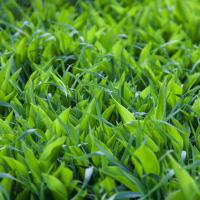Are Tomato Plant Leaves Poisonous to Cats?
As a pet owner, it's crucial to know which plants are harmful to your furry friends. One common question that arises is whether tomato plant leaves are poisonous to cats. The answer is yes; tomato plant leaves contain a harmful toxin that can adversely affect cats if ingested.
What is the Toxic Compound in Tomato Plant Leaves?
The toxic compound in tomato plant leaves is solanine, a glycoalkaloid that can cause a range of symptoms in cats, including gastrointestinal distress, tremors, seizures, and even death in severe cases. Solanine is prevalent in the unripe fruit, leaves, and stems of the tomato plant, making them dangerous for your cat to chew or consume.
What are the Symptoms of Tomato Plant Leaf Poisoning in Cats?
If your cat has ingested tomato plant leaves, you should monitor them closely for signs of poisoning. Symptoms may vary depending on the quantity ingested and the cat's size, age, and overall health. Some common symptoms of tomato plant leaf poisoning in cats include:
Vomiting and diarrhea
Loss of appetite
Abdominal pain and discomfort
Lethargy and weakness
Tremors and seizures
Difficulty breathing
If you suspect your cat has ingested tomato plant leaves and is displaying any of these symptoms, you should seek immediate veterinary attention. Your vet may administer medication to induce vomiting or perform a gastric lavage to flush out the toxin from your cat's system. They may also provide supportive care, such as IV fluids and medications to manage seizures and other symptoms.
How to Keep Your Cat Safe from Tomato Plant Leaf Poisoning
The best way to protect your cat from tomato plant leaf poisoning is to prevent them from accessing the plants in the first place. If you grow tomatoes in your garden or have potted tomato plants indoors, make sure to place them out of your cat's reach. If your cat likes to explore your garden, consider creating a designated cat-friendly area with safe plants that won't harm them.
It's also essential to provide your cat with plenty of safe and healthy plant alternatives to chew on. Cats are naturally curious and love to explore their environment with their mouths. Offering them cat-safe plants like cat grass, catnip, and spider plants can satisfy their desire to chew and protect them from ingesting harmful toxins.
Conclusion
Tomato plant leaves are poisonous to cats and can cause severe symptoms if ingested. It's essential to keep your cat safe from this toxin by preventing access to tomato plants and offering them safe plant alternatives to chew on. If you suspect your cat has ingested tomato plant leaves, seek veterinary attention immediately to ensure prompt and effective treatment.

 how many times do yo...
how many times do yo... how many planted tre...
how many planted tre... how many pine trees ...
how many pine trees ... how many pecan trees...
how many pecan trees... how many plants comp...
how many plants comp... how many plants can ...
how many plants can ... how many plants and ...
how many plants and ... how many pepper plan...
how many pepper plan...































